Podcast: Download (Duration: 32:37 — 30.0MB)
Get Notified Of Future Episodes Apple Podcasts | Spotify | Amazon Music | Android | Blubrry | Gaana | TuneIn | Deezer | Anghami | RSS | More
Podcast highlights:
01:49 – From limited growth to highly scalable
03:40 – The appeal of something bigger
05:48 – Difficult but worth it
07:33 – Growing pains and having support
10:32 – Why it’s not for everyone
14:20 – When people think they get it
16:45 – What Parent TV is all about
20:27 – The money aspect
22:25 – Founders supporting founders
23:51 – What proof does it take?
25:26 – The power of the story
Build the right business for you with help from James
Transcription:
James: James Schramko here. Welcome back to SuperFastBusiness.com. Today I’m joined by a very special guest, Sam Jockel, from parenttv.com. Welcome.
Sam: Thanks! Glad to be here.
James: So we have met at ProBlogger. It was a great event, I got to meet some really creative and smart people doing all sorts of different things. You and I shared a breakfast. And at the time, you were pretty big in the parenting space or the children sort of marketing Facebook group of some kind. And you’d been dealing with incubators and getting some help with your website projects. And then we got to chatting and over time, we became friends, and you were a member of SuperFastBusiness membership. And I tracked you through a few changes, but you’ve actually emerged out the other side with this entity called parenttv.com. And it’s been a wild and wonderful journey for you going through that startup world, and at times it gets a bit out of control. And the long-term goal is to have something substantial. So I think that’s a really interesting discussion for us to have.
So to start with, tell me how you started out with the Parent TV concept. From when we met to where you’re at now, what were the sort of milestones?
From limited growth to highly scalable
Sam: Yeah, I think it’s a pretty interesting journey, because I’ve been in business for probably about 10 years. And I think there’s a lot that I’ve done and haven’t really realized exactly what I was doing. But I’m very grateful that I did. Part of that is like, this whole idea of scaling and being able to scale stuff and not necessarily being have to be the one to work in the business and stuff.
Like historically, I guess I ran businesses that were very dependent on me, and were limited in terms of how they could scale and what that meant what that looked like. And I don’t think I fully understood. I knew that that word “scale” was something that people were talking about a lot. And I essentially went from a business that, you know, was quite limited to where it could go to now building something that is so much bigger than me and can grow so much bigger than me. And I guess a little bit of James Schramko taught that own the racecourse stuff. And that’s all part of that scaling thing for me, was that the business that I had built in the past was kind of built on Facebook, in a way, even though we did have our own website, and was really dependent on these platforms that I had no control over. And that was a really significant shift to start Parent TV where I was like, okay, I need to own that myself and that platform.
But having said all of that, it sounded really nice two years ago, but the reality is that that’s actually a really, really hard thing to do. And the reason why so many people have businesses on Facebook and Instagram and YouTube, is they do offer something that is kind of like the short game. And you do get wins a lot easier to a degree, or at least you used to when it was easier. But building something that is your own racecourse, like I’m learning, is the long game. And quite challenging. But I would absolutely not change a thing.
The appeal of something bigger
James: So when it comes to switching your business model from the limited version that you had, that was easy, and short-term focused, and you had a lot of juice in that Facebook group and you had a business partner, you had things going well, why do you think this bigger idea grabbed you? And how hard was it to retrain the way that you think around switching from a short term, got-it-now type model to a longer term, it’s going to be a struggle, may-not-even-make-it type business model, but if you do, it’ll be a home run?
“Business partnerships in some ways are quite complex.”
Sam: Yeah. So there are probably a few things happening for me. I’ve been in business for probably six to eight years doing my other business. And I did have a business partner at the time. And you know, we were great mates. It was a really good time, those six to eight years. But things did, I think, really change for us. And I realized business partnerships, in some ways, are quite complex. And I think, looking to the future, we kind of wanted different things, and part of me was like, it was a struggle. And I knew I had to make some decisions about the future that I wanted, and it was going to look different to what I had. And so I was looking to what was kind of next.
So there was kind of that aspect of things. But probably even bigger than that, for me, was that I found myself running a business that I wasn’t proud of, that didn’t make my heart sing, that even though we were making money – and you know, it was doing pretty well – I did literally sit down one day and say, 20 years from now looking back, am I proud of this? Like, where is this headed? Like, who am I becoming? And is this what I actually want? And it really absolutely wasn’t.
Most of my time was being spent selling two-minute noodles to moms and Milo. Like, I was a social worker and trying to do some good in the world, and I ended up just selling people stuff that I didn’t even care about, to make money. We were also doing good, but that just wasn’t where it started, but it’s where it ended. And even though there was money in it, like, it was killing me. And so there was kind of a mix of all of these things happening at the same time. And I was like, if I don’t do something about this now, like, where does it ever end?
Difficult but worth it
And I just had to make a decision. It was hard, like, six months of transitioning from School Mum, to Parent TV, to breaking up a business partnership, to working that out, to starting again. And I’m now two years in and you know, it’s still really freaking hard. And I sometimes think, wow. People would go, you were crazy to have not taken my other community as far as I could have. But I still wouldn’t change a thing after two years. Actually, now I feel like I’m on the adventure of a lifetime. And I’m finally just in my lane, and I’m proud of my work. And that matters more than, you know, the $20,000 contract I could have got with some brand to push something on mom that I just did not even care about.
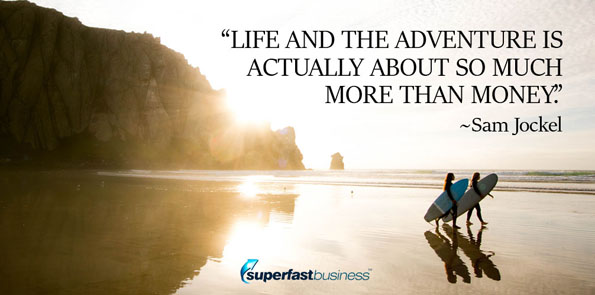 Like, at the end of the day, I’m learning, yeah, life and the adventure is actually about so much more than money. And I don’t say that, like oh, I don’t care about money, I absolutely do. Like, I need enough money to pay my bills and to have a decent quality of life. But I don’t know, I’m just learning that, yeah, the relationships that I have now, the people that are around me, the things that I’m doing, it’s like, it’s awesome. But it’s also really freaking hard.
Like, at the end of the day, I’m learning, yeah, life and the adventure is actually about so much more than money. And I don’t say that, like oh, I don’t care about money, I absolutely do. Like, I need enough money to pay my bills and to have a decent quality of life. But I don’t know, I’m just learning that, yeah, the relationships that I have now, the people that are around me, the things that I’m doing, it’s like, it’s awesome. But it’s also really freaking hard.
James: So, I remember that growth phase you had was very challenging. It reminded me of people who travel overseas, get into an accident, break a leg or something and get it repaired while they’re overseas. And then they come home and they find out they have to have it re-broken and corrected, you know, like straightened up properly. There was no avoiding the pain of changing from a partnership to your own mission. At the same time, you’re a mom, you’ve got a family, you’re swinging from one income vine to another. I often use that metaphor, you know, you have to get a good grip on it to make sure that it’s safe. But at the same time, you really just didn’t want to hang on to the old one. So that probably made it a bit easier.
Growing pains and having support
I remember during that phase, we had a few discussions. You’d disappear for a while, then you’d come back with an upload and we’d discuss things. Can you share a couple of things that happened as you went through that growth phase that perhaps you and I spoke about that helped you get a new mindset around what you were going through? Because, of course, it’s very hard to go through by yourself. And hopefully it was helpful to have someone to chat to during that phase who’s been through similar situations.
 Sam: Yeah. I mean, I think the thing that was helpful for me about you, and I’ve learned this, in some ways, so much of business is about relationship. Actually, it’s nearly all about relationship, really. You need capacity, like you need to have a good idea; you need to have proved that you can kind of make stuff happen, and that you’ve kind of somewhat got the elements of what it takes. And then sometimes the rest of it is just about whether people like you or not. And then there’s the complexity of, yeah, people like you, and then people just get busy and don’t do what they say they’re going to do.
Sam: Yeah. I mean, I think the thing that was helpful for me about you, and I’ve learned this, in some ways, so much of business is about relationship. Actually, it’s nearly all about relationship, really. You need capacity, like you need to have a good idea; you need to have proved that you can kind of make stuff happen, and that you’ve kind of somewhat got the elements of what it takes. And then sometimes the rest of it is just about whether people like you or not. And then there’s the complexity of, yeah, people like you, and then people just get busy and don’t do what they say they’re going to do.
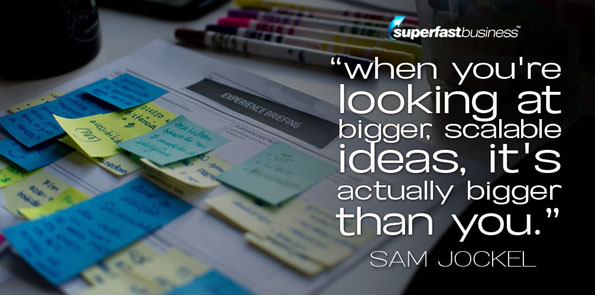 I think kind of where I’m going with this is the main thing that I’ve learned about Parent TV, which is very different to School Mum, is that when you’re looking at bigger, scalable ideas, it’s actually bigger than you. I was kind of running a business before that I could kind of manage that wasn’t bigger than me, to a degree. I could just kind of have contractors and stuff. Parent TV is like, a totally different story, this idea is epic. This idea needs a massive team around it, from investors to advisors to our experts to staff to all different kinds of people. And so me being at the center of that, so much of my job has just been about trying to cast a vision, prove that there’s something here, and find amazing people to get around me, before I had any money, or I could kind of pay people to do stuff. And it’s a pretty hard freaking task.
I think kind of where I’m going with this is the main thing that I’ve learned about Parent TV, which is very different to School Mum, is that when you’re looking at bigger, scalable ideas, it’s actually bigger than you. I was kind of running a business before that I could kind of manage that wasn’t bigger than me, to a degree. I could just kind of have contractors and stuff. Parent TV is like, a totally different story, this idea is epic. This idea needs a massive team around it, from investors to advisors to our experts to staff to all different kinds of people. And so me being at the center of that, so much of my job has just been about trying to cast a vision, prove that there’s something here, and find amazing people to get around me, before I had any money, or I could kind of pay people to do stuff. And it’s a pretty hard freaking task.
Now, I’m actually okay at doing that. However, people have all the good intentions in the world, and they get busy. And having someone in your life who you’ve somewhat paid some money to, whose job it is to respond to you when you ask them a question, is very valuable. Because in these early days, lots of people are helping you, but they’re not actually getting paid. And so they help you when they can, but it’s so hit and miss. It’s really challenging. And so much of what you’re doing is waiting. And so many things are interconnected that I can’t do that until I do that, and I’m waiting on you to do that. But you’re now overseas for the next week, because you’re doing some deal worth five times more than mine. So right now on the priority list, I’m at the bottom, but you’re at the top of mine, and there’s nothing I can do about that. And dealing with those feelings, and dealing with the frustrations that come about how much is out of your control, having someone that you can talk to that about, who actually answers you because that’s their job, that they’re kind of being paid for to a degree, is really helpful just to preserve your actual sanity.
Why it’s not for everyone
James: That’s an interesting point, that sanity is an interesting point, because the journey you’ve been through, it really stretches you to the utmost limits of life. And would you say that this is not for everyone, this kind of vocation?
Sam: No. This is absolutely not for everyone. So just to give you a context, I have a background in, like, social work slash counseling; I have done a lot of work on myself; I have seen counselors in my life. I mean, I guess in some ways Parent TV is all about just learning about your stuff, to be the best that we can be for ourselves and for our kids. So this is what I do. I am 100 percent honest, I’m kind of all cards on the table, ask me a question, I’ll tell you the truth, kind of. I’ve got nothing to hide. So I can deal with stuff quite quickly; I’m super resilient. And my bounce back is pretty good. And despite all of that, I have never in my life experienced such intense emotions and challenges and frustrations.
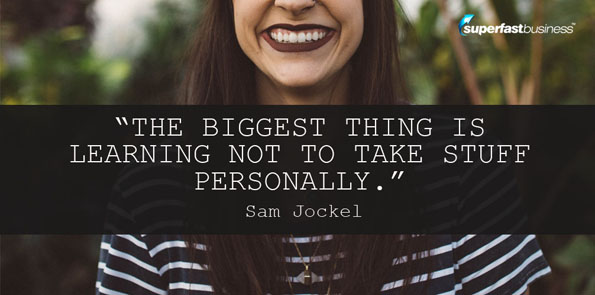 And even when you think that it can’t get any worse than this, or I’ve dealt with this, keep bouncing back, it just keeps coming. You get better at not going as low sometimes into stuff or just getting to understand the people around you and how things kind of work. But the biggest thing is learning not to take stuff personally, and that’s I think maybe a little bit more challenging for women than men. I could be wrong, but I’m going to make that call, that we create stories in our minds. And we often, when we don’t hear, we make it personal. And I’m learning how much stuff is not personal, and how to interact with people without coming from that. And that’s probably been one of my biggest learnings with it all.
And even when you think that it can’t get any worse than this, or I’ve dealt with this, keep bouncing back, it just keeps coming. You get better at not going as low sometimes into stuff or just getting to understand the people around you and how things kind of work. But the biggest thing is learning not to take stuff personally, and that’s I think maybe a little bit more challenging for women than men. I could be wrong, but I’m going to make that call, that we create stories in our minds. And we often, when we don’t hear, we make it personal. And I’m learning how much stuff is not personal, and how to interact with people without coming from that. And that’s probably been one of my biggest learnings with it all.
Yeah, but I tell you, if you are kind of not mentally stable, and I don’t mean that in any kind of offensive way, but this is like walking into, I don’t know, the most full on. Like, I’ve got three kids, and I’ve done lots of business for 10 years. But this is just like, next level. And it’s because, you know, there’s a lot at stake. Like, I haven’t taken away for two years. If you look at how much money I’ve invested and the opportunity cost of that, it’s probably around $250,000. My husband’s been on long service leave for six months; he finishes that in five weeks. So he’s been like, working in Parent TV. We are all in on this.
Like, it is in some ways high stakes for us. But we’re absolutely invested in this at the same time. It’s not high stakes in that, you know, if it doesn’t work, we won’t have anywhere to live. And, you know, like, I’m quite smart about the safety net that we have. And by that safety net, I mean, you know, we mostly own our house. And, you know, that’s the result of small, good financial decisions over the last 20 years of our life.
And what I’m learning is all this stuff is the long game. Like, we’re taking risks that we can take, because I’ve calculated them and I know what our limits are. And so we’re being strategic and smart about what is possible. There was a plan in place, it’s not just crazy crazy. But you’re still pushing that to the limit of what you can actually do before you kind of break, and then you’re off doing business, getting to that breaking point, and then you kind of, something will happen that just takes the pressure off for a bit and, you know, a few months later, you’re back there again, and it’s just this constant kind of back and forward into like, while you’re building, I guess, and really doing the work.
“It is not quite a straight line from the bottom to the top of business success.”
James: Yeah. It is not quite a straight line from the bottom to the top of business success. And a lot of the work that I do is helping people eliminate the downward steps. And I was just speaking to a client today who’s in a market that was really suffering up until our election. And because of the election results, and the economic stimulus that’s going to be coming, his market’s now back up and running. But it was down a bit, you know, before, and we were starting to look for ways to protect him.
When people think they get it
But in your particular business model, in that whole startup world, it’s very different to the typical business owner I’m working with where they can self-fund and they have high profit margins. You’re more the Amazon model where you might run in the negative for many, many years. And you know, I guess that adrenal roller coaster is you don’t know how it’s going to end up. We don’t know the end of this story. But part of this journey is growing you as a person and you’re going to get an outcome of massive experience. And I bet you, in a few years time when you’re really on the global stage and a validated, bonafide financial success, someone’s going to look at you and say oh, Sam’s just lucky. She picked a good idea. Or, you know, they’re not going to even fathom the amount of stress and strain that goes into creating what you’re creating.
Sam: I know. I had this conversation with this woman today. Look, I was tired. And I’m a very direct person at times. And she was giving me her opinion on my business. And it was pretty funny, actually. She’s like, “Oh, you know, you should be really looking at being kind of the distributor rather than looking at content,” and kind of getting it, like, just the opposite to what I was doing. And I was like, “Oh, do you run a content platform? Do you?” She’s like, “No.” I‘m like, “Oh. So like, I do. I’ve been doing this for two years.”
Like, yeah, I just find the opinions and things that people say to me, it’s always quite interesting. Because I’m like, man, if people only knew. They talk about it like, “Oh, that’s just really easy. Like, just do that.” It’s like, yeah. “Oh, have you tried that?” “No.” How can you even have any idea? I don’t know if you’ve heard of Brené Brown, but she talks about being in the arena. And I’m like, unless you’re in that arena, please do not open your mouth to me.
James: Brené is the vulnerability Ted Talk?
Sam: Yeah, and she’s got this book Dare to Lead and she talked about it.
James: I think I’ve heard her name seven times in the last week. She’s even in a Netflix special that I watched the other day. So she’s going prime time.
Sam: You know what? I read her book, Braving the Wilderness. And that was the book that I read, just before. And it was about having the courage to stand alone in the wilderness. And that was the book that I read that really ticked me over the edge to go, I’m going to do this, and I’m just going to see what happens.
James: You are adventurous. I mean, at the ProBlogger event, you came up to me at breakfast, sat with me and started chatting. You’ve got front; you lead with your front foot. And a lot of people want the result and they want the success, but they’re not prepared to go and get it. And that’s the difference. You’re a doer, and I like that about you.
What Parent TV is all about
I also think we should talk about the product. I got an early look at the product, I was able to log in and check out the content. I really liked it as a parent. And certainly going through that whole thing again, I think a resource like this is really valuable. Why don’t you give us a little market sort of pitch of what the product actually is? What are you telling people when you go to an expo or trade fair, and you’re talking about your product?
Sam: Sure. So I kind of say, Parent TV, think of it like Netflix, but for parenting resources. We are more education, though, rather than entertainment. And what we’ve done is literally bring together some of the world’s leading parenting educators all in one place, and we’ve filmed kind of two-to-five-minute mini TED Talk type videos, literally answering the questions that we know parents are asking. Because what we know is that Facebook and blogs and YouTube and Google have been around for a good eight to 10 years, and that’s where parents have been going and asking their questions. And while that’s been happening, we have had a significant increase in mental health issues in our kids, which are now one to five, sometimes one to three. And suicide has become the leading cause of death amongst young people.
So one thing I can absolutely tell you is that the places and spaces that we’re getting our information from and the information that we’re getting is not actually helping us. So what I set out to achieve was essentially create a place that parents could go where there was credible research-based information from people who knew exactly what they were talking about. No agendas attached, no advertising, no product placements, no one’s pushing anything on you, because it is a subscription platform, and so people do pay for that content. But what we guarantee you is actually good content that will help turn around the really sh*tty things that are happening for our kids, around some of like, the mental health stuff, or, yeah, there are massive problems out there.
And so I guess bigger than that, again, is we started out looking at that B2C kind of model, going straight to parents. But where we’ve kind of landed is a bit of that, but we’re also working with schools and childcare centers. And that’s probably a bigger business than us, because what is happening is parents are showing up to schools and childcare centers, often asking for help. But those institutions are there to educate our kids, not parents. And so they’re really struggling, because they know psychologists and psychiatrists and speech pathologists and occupational therapists. So we’ve essentially created this platform that can be an on-demand tool for teachers and principals and guidance counselors and whoever that they can tap in, in those moments parents come asking questions, and literally getting information from people who know what they’re talking about in the moment in time.
James: I know for a fact, like, the guidance counselors in the schools are absolutely maxed out, like every session’s booked. They have to take leave to recover. They change roles as churn. There’s nowhere near the level of resource available for parents, compared to the amount of the problem that’s out there. I’ve had kids going through the school years, and I’ve seen that firsthand. So tell us, where is Parent TV at right now in the general scheme of the business evolution?
Sam: Yeah. So this is where it all just gets very, very interesting. So essentially, we’ve been in market for a year. So we’re probably about two years old, from kind of initial ideas phase to getting prototypes built, pitch decks done, kind of getting some early stage investment to create the actual product. Because the thing is, like, it’s actually an expensive product. We’re creating content, we’re creating platform, this idea just can’t happen from a person in their house somewhere – like, it’s big. And so we managed to do that. And then we launched. So that was March last year. So that was maybe 13 months ago.
The money aspect
In that period of time, what I’ve since learned is, like, we weren’t making enough revenue. So we got revenue on our first day. So what I absolutely know is we’re not one of these startups who’s like, free, free, free, free, free, free, free, and in 10 years, we’re going to try and work out how we’re going to make money. I’m going to give this 10 years. We give valuables straight up. No one is getting this for free, because it’s awesome. So pay us some money, and it’ll be good for everyone. How much we’re charging the client is really based on a scale model. So it’s low cost, and we want lots of people on. It’s going to take a while to get lots of people on, but we’re still at that low cost. So we still do actually need investment to get enough runway to get to scale.
And so we’re kind of at this point where I didn’t know what I was doing, but what I’ve realized now is my only goal was, okay, what are the indicators we need to get to, to prove to investors to give us more money? That’s it. I didn’t quite realize that that’s what I had to do at the start; I was just kind of like, oh, we’ll just market and now, a year and a half, and I’m like, if I probably had an eye on a little bit more, I might have done stuff differently. But I’m also learning these things of, I’m behaving in certain ways and doing certain things for this business, because I know that’s what an investor wants to see, but my gut knows that is not the best thing for this business right now.
“There is a level of compromise when you take investment money.”
James: So there is a level of compromise when you take investment money. It’s no longer just you with full control. It’s a bigger machine, and there are other stakeholders who have a say.
Sam: Yeah, absolutely. Before you even got that investment, you still have to do things to try and get that investment. And what I’m learning as well about things like this is, they’re actually not entrepreneurs that get innovation and entrepreneurism. They just have like, a checklist sheet. And if you don’t tick those boxes, then we’re not interested. But you’re like, but that’s not innovation. So I’m always in this very frustrated place. And I’ve done actually a very challenging startup, because most startups are like, B2B SaaS products. Like, we’re doing content platform. We actually haven’t really been seen, and there’s not very many examples of the type of startup that Parent TV is.
Founders supporting founders
So for me, a lot of people that I talk to are kind of a bit afraid of us. They’ll go, there’s no roadmap for this, so we can’t make a call on what we think about the future of this. So it’s interesting, because all of the people that I’ve had backed me have all been super successful founders, who see me as a founder. So they’re backing the innovation in me as a founder, and they understand me more than just ticking boxes, which has been a very fascinating, sometimes somewhat challenging for me to get taken seriously in some circles. And I’m like, if these guys who, you know, one of the guys sold his first company for $413 million, can see something in me and back me, it’s just like totally different types of people in this world.
In the startup world, like you’re dealing with people who are actual entrepreneurs, and people who are representing funds, who don’t actually understand that, and you’re always trying to justify yourself, and I hate feeling like I have to justify myself. Like, for me, I’m just like, look at this, look at what we’ve done. Like, I shouldn’t have to justify anything. This is like, you know, it’s good. But it’s just such a weird space. And it’s competitive. There’s lots of people. I guess they’re being pitched at all the time by lots of people. So they’ve got certain funds, certain sizes, and they only have this much to give, and they’re looking for the ones that look like they’re going to be the best winners or whatever that is. And so it’s kind of a weird space.
What proof does it take?
So where I kind of got to, I guess, getting enough traction to prove that there’s something here that can then scale. So the question is, what does that look like? And for me, it was quite challenging, because it’s around, how many experts did we sign up? How many videos have we filmed? How many schools have signed up? How many child care centers have signed up? How many of the parents in the schools and the child care centers are actually using the product? How frequently are they using the product? Like, the amount of boxes that something like Parent TV has to tick for the whole idea to be deemed successful.
I walked into something so complex, that needed so many different areas to work, that it’s actually overwhelming to explain and understand sometimes and get all of the data on, which is why people kind of look at the idea and go, Wow, that’s big. But I’m like, yeah, and exciting. Like, imagine if we actually pull this off. And it’s actually happening. And I’ve nearly done that single-handedly with a couple of people that I’ve employed over the last few months to help me. Imagine what happens if we get a team around this.
But then they’re like, oh, we don’t really want to invest until you have the team. Because that’s all part of the success. And you’re like, Yeah, but you do know that you need to actually have money in the bank to offer people to join your team before you actually get good team members to leave their good jobs to join your team. It’s the whole thing is just weirdly screwed up. But I’m getting there anyway. But I mean, that’s the stuff where I’m like, it makes you crazy. Because you’re creating something out of nothing that doesn’t exist, that there’s no roadmap for, and then have to convince people to work for you, give you money, give you content, do this, that. It’s actually insane, but fun.
The power of the story
James: You’re probably in a good position to help other people who might be going through this at some point. Did you find any useful information or resources that helped you create the vision for investors that compelled them to want to invest in you?
Sam: So, the one thing that I’ve been really good at, and it came from my background, is sharing on social media my story. So, you are right that I’m a doer.
James: You are a doer. I see a lot of people, and I can tell people where they’re different than the average person. And you pop out straight out the top of that one.
Sam: And because I was a social media influencer for a good eight years before I stepped into this, I already had a lot of experience finding the story within the story. I had the habit of taking the photos and sharing that. And so that came very naturally to me. And actually, to be honest, for the first time in my life, I was doing it about things that I actually cared about. Like, I didn’t so much care about what I was having for dinner and the School Mum stuff. I was working on it, but I wasn’t loving it. But this I love, so it was so much easier for me to share those stories.
“It is not about quantity, it is about quality. LinkedIn is about quality.”
So I mean, this is my hot tip for anyone doing this stuff, right? Here’s why I think I got to where I got to. LinkedIn is where it’s at for me. Not in terms of my actual, B2C customer, parent sign-up to Parent TV. But in terms of team, and investors. I’ve been very strategic about when I go to events and pitch at things and meet people, connecting with them on LinkedIn. It is not about quantity, it is about quality. LinkedIn is about quality. We’ve got caught up in this whole how many thousand followers do you have, blah, blah, blah. I had 460,000 followers on School Mum. In some ways, that’s dead to me. My 1500 connections on LinkedIn are worth more than my 460,000 followers on School Mum, for this business, absolutely. I have connected with these investors. I connect with people who I think, maybe I would love to work with you one day.
And one of the things I do is I just share my story on LinkedIn from a business point of view. I pay videographers to come and do live vlogs of different bits and pieces. Went to the States last year, went to a conference for three days; we sold Parent TV into 25 childcare centers in a foster care network, filmed to five. We took our video guy with us, he’s logged the whole thing, sharing stories, sharing the story. So investors and people and team members, they understand Parent TV, and they bought into it because I had been sharing that story online nonstop for two years. So when I meet with them and I talk to them, they already know. They know who I am. They know what we’re all about. They know the traction that we’ve had and what we’re doing.
And I just keep sharing that story. Because what I can’t do sometimes is get meetings with even my current investors. Like, these guys are busy. They are not like sitting around like, yeah, we’re just going to catch up with Sam every week for an hour. They’re out of the country doing bits and pieces but they are on LinkedIn and they do see my stuff. Oh, look Sam’s doing stuff. Well, Sam’s someone that does stuff. She’s like, oh, she’s speaking at this conference. And they get that sense of who you are and what you do. And then people are going, oh, maybe I’d like to work with Parent TV one day – that looks fun. Like, look at those people having fun over there, doing that thing. And so you are slowly, over the long game, letting people find you, just being strategic about connecting with people, and then sharing that story. And now I’m even going as far as connecting with people in the childcare industry, like I’ve done that, who’s the head of associations when I meet them at conferences, and so they’re starting to see our story too. And they’re starting to contact me and go, hey, maybe we can do a content partnership with you for our centers. And so, yeah, LinkedIn, there is massive value.
James: I’m hearing that a bit, and I actually get the most video views on my LinkedIn channel. It’s a great platform for me, and I wasn’t really into it until I bumped into Julie Mason, a member of SuperFastBusiness. And I’ve commented in SuperFastBusiness that I wasn’t that into LinkedIn. She goes, let me show you how to use it properly. And I think we’ve tripled our network there; we get a lot more videos and bio views, and it’s definitely generating sales. So what a hot tip.
I think maybe that’s the story in Sam’s stories, scaling through relationships, and you’re really good at it. And I’m so pleased you were able to come along and share this journey. There’s a lot of other things we could talk about too, such as what’s actually involved in going to the startup, pitching, how you get the investors, what the money is spent on. But I think we’ve covered those in broad brushstrokes. And I think the audience of this show is not as not as startup-oriented as some other shows. And we acknowledge that. We’ve got a lot of ecommerce, agencies, infoproduct marketers and experts, but everyone can benefit from scaling relationships, getting the key contacts, finding the right players, asking them what you need help with. That’s your super skill. And I think you probably inspired a few people today. So thank you so much for sharing that.
Sam: Yeah, no worries.
James: So check out parenttv.com. How can people get their schools interested in it? And is it a global thing yet?
Sam: Yeah, it is. We actually had our first inquiry from a network of seven centers in Hong Kong today, so happy days. So they just go to parenttv.com. You can either sign up individually as a parent, it’s literally $5.99 a month, so $49 a year, and it is extraordinary for that.
James: That’s $5.99?
Sam: Yeah, $5.99 a month.
James: We’re in the $599 world, in our world here. So that does sound like a bargain. And I’ve seen the content, it’s great.
Sam: It is.
On our site, there’s a thing that says School / Childcare – if you just click on that, you just fill out a form and it comes to us and we send you all the information about schools and childcare centers and signing up for that and what’s involved. Yeah.
James: Fantastic. Well, thank you so much, and I wish you the greatest success with parenttv.com.
Sam: Thanks, James.
James: I feel lucky to have had a backseat view of this the whole time. And when it does pop up and becomes majorly famous, I’ll say, I remember that lady when we shared a fruit plate at a blogging event and she was an influencer on a Facebook group for school mums. What a journey. I’m so pleased to see this in our community.
“No one ever wants things to end in tricky ways.”
Sam: What a crazy journey it has been. Yes, well you were very key, James in supporting me for ending one business and starting another. And yeah, I do think without having met you and connected with you and getting your support through that, I don’t know if I would have made it out the other side. That was one of the hardest things that I’ve ever done in my whole entire life. And you know, there’s still a bit of sadness in me about that, because no one ever kind of wants things to end in tricky ways. But, you know, I knew you had a bit of experience in that, so it was very helpful to have someone who was…
James: In your corner.
Sam: In my corner, yes.
James: Sam, you’re a legend. Thank you so much.
Sam: No worries.
James: There you go. If you liked this episode, or if you know someone who’s needing help with their kids, share this episode with them. And I’m sure if you want to connect up with Sam on LinkedIn, Sam Jockel is a pretty key contact to have.
Access a whole community of support for your business journey inside JamesSchramko membership
Enjoyed the show? Leave us a review on iTunes
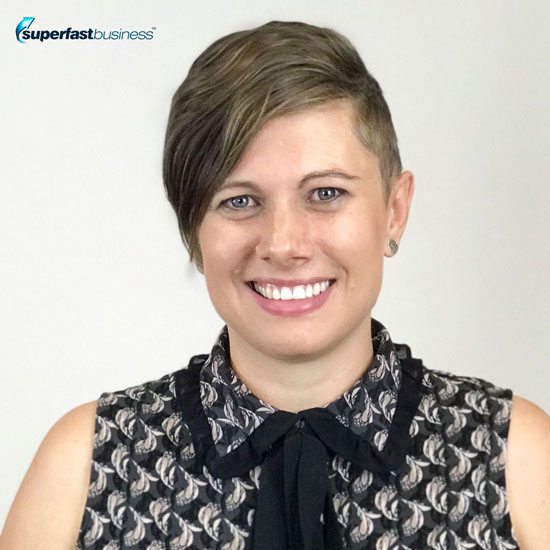
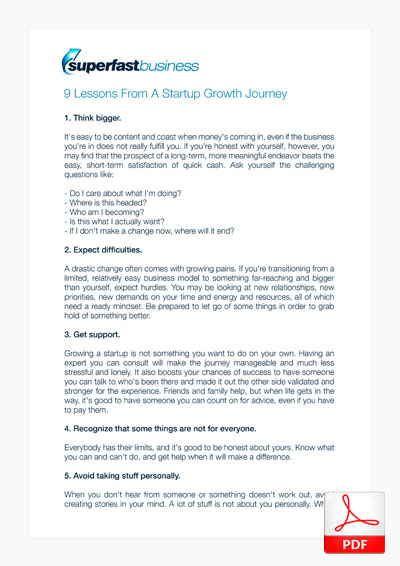









Leave a Reply